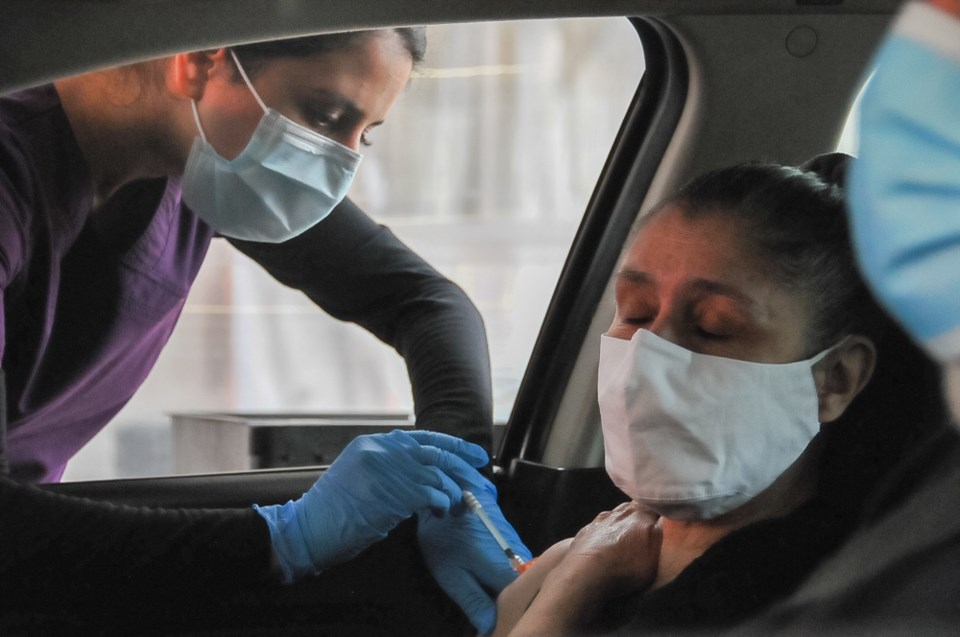Canadians who have caught COVID-19 should wait three months before getting a booster shot, recommends the National Advisory Committee on Immunization (NACI).
The , released Friday, comes as millions of people across the country have recovered from or are coping with infections from the Omicron variant.
By allowing time for an Omicron infection to mature and for circulating antibodies to decrease, strategically timing a longer interval between infection and vaccination "may result in a better immune response," reads the updated guidance.
NACI says there’s a that an Omicron infection paired with a delayed booster may provide stronger and longer protection against current and future variants.
"Emerging evidence indicates that a longer interval between SARS-CoV-2 infection and vaccination is associated with improved antibody responses to COVID-19 vaccines."
Held up against guidance from provinces like British Columbia, the new three-month booster interval offers a conflicting message.
"Even if you've already had COVID-19 and recovered, you should still get your booster dose," read the sa国际传媒 government's Friday, echoing repeated advice from provincial health officer Dr. Bonnie Henry to get boosted as soon as possible.
"If you were recently infected, you can get your booster once your symptoms have passed."
But according to the new recommendations from NACI, anyone 12 and over who was infected by the SAR-CoV-2 virus after two doses should wait three months from the onset of symptoms, or if asymptomatic, a positive test.
For vaccinated people over five years old who get infected before their booster shot, NACI says to wait eight weeks after the onset of symptoms or a positive test. That's assuming they are not immunocompromised, and in children, don't have a history of multisystem inflammatory syndrome (MIS-C).
Individuals five years and older who are immunocompromised and get infected before finishing their primary vaccination series should get their next dose four to eight weeks after the onset of symptoms or a positive test, NACI says.
And for anyone over five with a history of MIS-C, regardless if they are immunocompromised, they should wait at least three months after the onset of the syndrome, or if longer, until they clinically recover.
Unvaccinated individuals can receive their first dose as soon as they recover from the worst COVID-19 symptoms, and they are no longer infectious.
In all cases, NACI advises clinical discretion.
NACI acknowledges in the new guidance that there aren't enough clinical or real-world data to help experts decide how long infected individuals should wait to get boosted. It adds that the latest recommendations are "based on immunological principles, the available evidence, and expert opinion."
The national scientific body says many unknowns remain, including how long an Omicron infection protects an individual from re-infection.
NACI says it will update its guidance with more evidence as it arises — or as new variants emerge.

